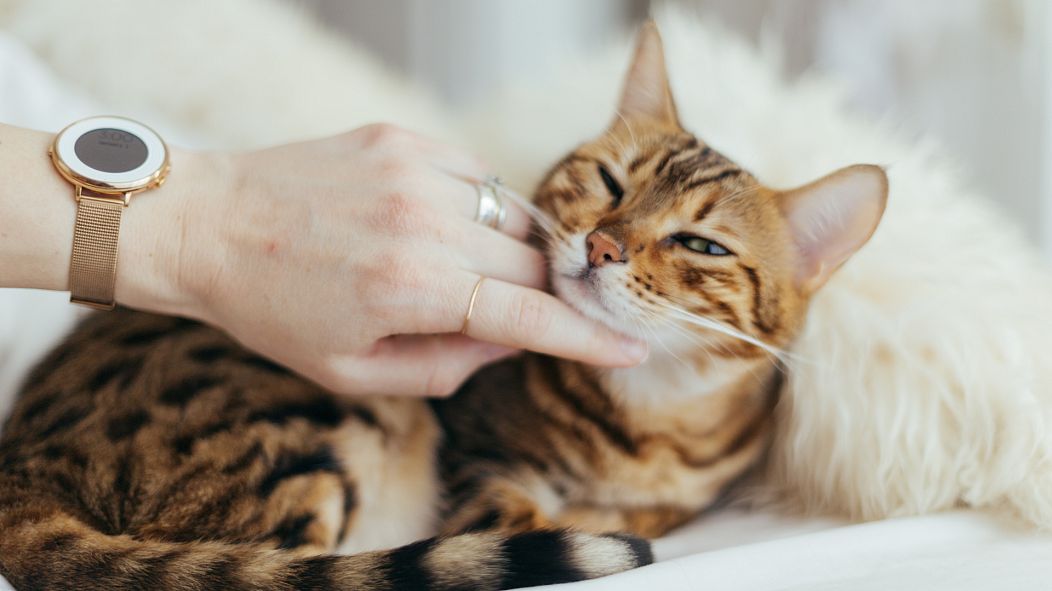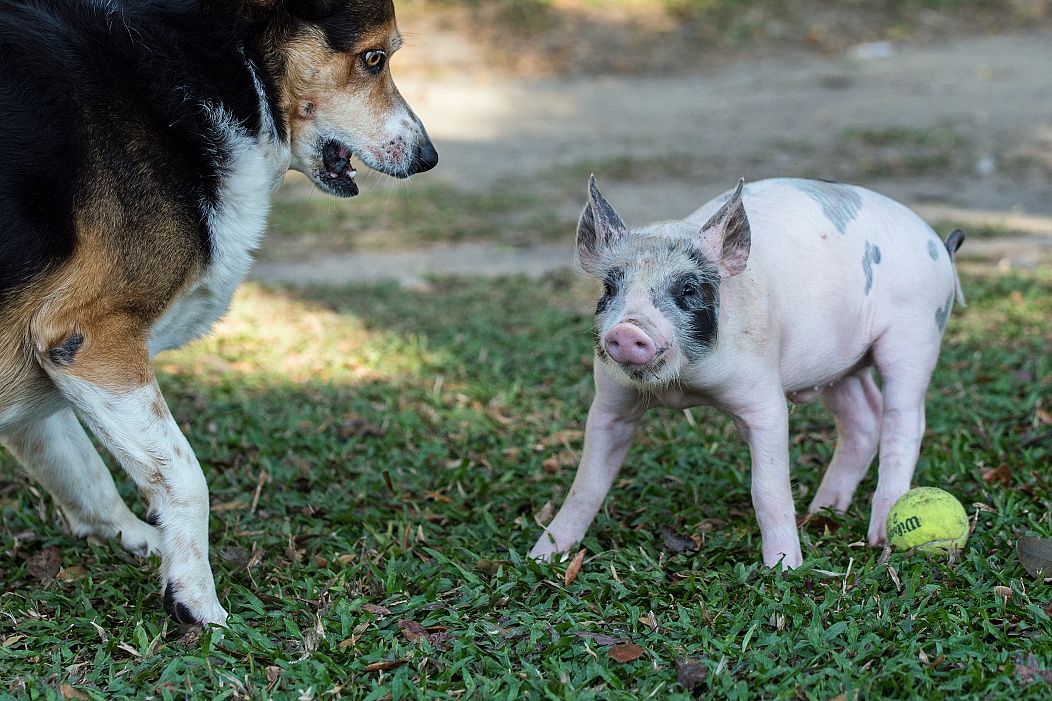Is mollycoddling our pets just speciesism at its finest?
Nowadays, owners are more and more attached to their furry friends and will go to extraordinary lengths to keep them healthy and happy. Pets are being spoilt with pampering packages, from luxury grooming and massages, to pedicures and fresh breath treatments. Doggy spas like The Pet Spa in London's Chelsea are popping up all around the country, offering treatments like blueberry and vanilla facials and oatmeal healing baths.
What's more, the Association of British Insurers (ABI) says pet insurers paid out a record £785 million in 2018 and there has even been a rise in owners’ concern for the ingredients in pet food, opting to serve their dogs home-made food instead. According to tails.com, 44% of British owners now cook home-made, dog-friendly meals and treats themselves, 28% build dog toys from scratch and 13% make clothes to fit their dog.
CBD for pets
CBD (cannabidiol) oil has been the newest health trend to hit the market since it was legalised in the UK two years ago. The non-psychoactive compound found in cannabis was marketed primarily for human use and is now available in both health food and specialist shops, like The Drug Store. Consumers are lapping it up in tinctures, creams and balms to treat anxiety, insomnia and even physical conditions like diabetes and arthritis. There are now an estimated quarter of a million regular users in the UK.
But as of late, CBD use no longer stops at humans, owners are buying the products for their pets. According to the Veterinary Medicines Directorate (VMD), veterinary products containing Cannabidiol (CBD) are recognised as medicine in the United Kingdom. Dr Tim Shu, founder of Vet CBD in the US, claims that CBD can help keep your pet calm and even support joint mobility and maintain normal gastrointestinal health. Giving THC to animals on the other hand is not advised and can be toxic.
Last year, Rover.com found that one in ten dogs around the country regularly face panic attacks, anxiety or depression. The RSPCA has also published material reporting a rise in pet mental health problems, citing separation anxiety as a common condition in dogs. Tell-tale indicators include “destructive behaviour, unwanted toileting and howling/barking.”
More recently, an article by the BBC saw a woman in Texas tweeting that her cat’s behaviour had changed since her ex-boyfriend, whom the cat had formed a strong bond with, had left her.
The tweet, gaining 250,000 likes and 13,000 retweets, clearly resonated far and wide.
While there isn’t an established market in the UK for animal CBD products yet, many Brits are shipping them over from reputable brands in Europe and the US. One such brand from Switzerland is Formula Swiss, which sells veterinary medicinal products that meet the standards of the VMD in the UK.
These products cannot legally be sold within the UK, due to stringent laws that are slow to change. However, the demand is there. Formula Swiss “could easily sell 30,000 – 40,000 pet CBD products in the UK per year, if we were allowed to,” CEO Robin Roy Krigslund-Hansen tells Euronews Living. Their CBD Oil drops come with chicken and beef aromas.
Is spoiling our pets a form of speciesism?
For animal rights organisation PETA, you can’t keep and care for pets and justify eating meat. This is what is called 'speciesism', the belief that discriminating based on species membership is permissible. In other words, if you treat one species as morally more important than other, you are aligning yourself with a “human supremacist line of reasoning".
Let’s face it, compared with other animals, ‘man’s best friends’ have it easy. Dogs and cats are mollycoddled and pampered while cows and pigs are slaughtered in their droves.
The animal rights group is calling for an end to speciesism via the hashtag #endspeciesism . For them, discriminating against other animals is just as bad as discriminating against race, age, gender or sexual orientation.
“Nonhuman animals are not objects that belong to us—they’re individuals with their own interests, just like us,” PETA maintains on its website.
“If you eat one while you cuddle the other, it's time to change your perception.”
Vegan activists tend to go by the same set of beliefs. Last year, so-called ‘Earthling Ed’, or Ed Winters, put on a talk at Cornell University on ‘The Ethics of Pet Ownership’, arguing that keeping pets was unnatural in the first place. As loveable and furry as they are, even describing animals as ‘pets’ and ourselves as ‘owners’ implies a sense of propriety and devalues their lives, he says.
We spoke to Sam Calvert, spokesperson for The Vegan Society, for the vegan perspective.
“Veganism sees no distinction between companion animals and ‘farmed’ animals. The rights of all animals are considered to be equal as they all feel pain and are all unwilling to die just as people are," she told Euronews Living.
Calvert continued, "clearly many people do manage to make a distinction between the animals that suffer and die for their dinner plate and the ones that are treated as part of the family," adding that as children, we are not raised to see these distinctions.
So, if we love our dogs and cats so much that we’re willing to spend money on fancy spas and CBD oil, can we continue to eat meat with a guilt-free conscience? If so, that is to say one animal’s life is more important than another’s.
When raised in their natural environments, i.e. not on factory farms, pigs are known to “dream, recognize their own names, learn tricks like sitting for a treat, and lead social lives.”
Urging us to consider a vegan diet if we care for animals, Calvert agrees. "Pigs are just as intelligent as dogs and would make super companions, so it makes no sense to have these distinctions.”





